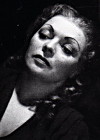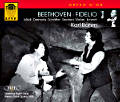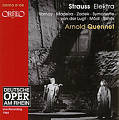ORFEO International
News
March 2012
Martha Mödl 100th Anniversary
Every tribute to Martha Mödl, who would have been one hundred years old on 22 March 2012, is like describing that untranslatable and constantly shifting concept of the monstre sacré. 
Martha Mödl
Foto: Archive of the Bayreuther FestspieleShe was a highly individual and idiosyncratic singer, her vocal and histrionic abilities by no means uncontroversial but ultimately invariably compelling. No one who has heard her recordings as Isolde under Karajan in the first post-war Tristan und Isolde at the 1952 Bayreuth Festival or as Leonore under Karl Böhm in the performances of Fidelio that reopened the Vienna State Opera in 1955 will be able to resist the dazzling brilliance of her interpretation of these roles. There seems little doubt that the intensity of such performances in this hochdramatisch soprano repertory affected her voice and made it inevitable that she would soon change direction and focus on roles with a lower tessitura. But even in character parts she was no less successful than she had been earlier in her career, especially as Klytämnestra in Strauss’s Elektra, in which she often appeared alongside Astrid Varnay. Whatever rivalry there may have been between these two singers, they were always the closest of colleagues. Even later in her stage career, which ended only in the year of her death, 2001, Martha Mödl remained a potent presence in the role of the typical comic crone, notably under Wolfgang Sawallisch’s musical direction at the Bavarian State Opera, where she appeared as the Housekeeper in Strauss’s Die schweigsame Frau and as Zita in Puccini’s Gianni Schicchi, for example. And even in roles generally regarded as of secondary importance, this unique artist was always the focus of attention. For opera lovers all over the world, the centenary of her birth is an occasion to remember.

C 813 102 I 
C 661 041 B 
C 298 922 I 
C 603 033 D
top |